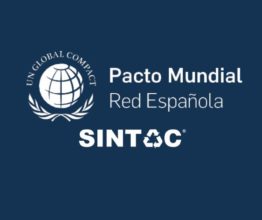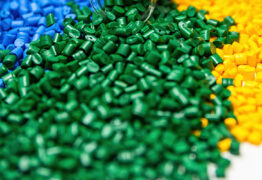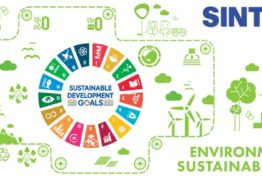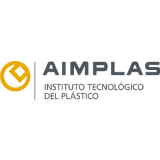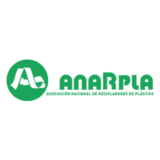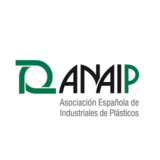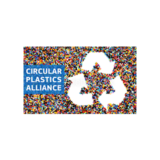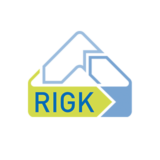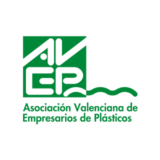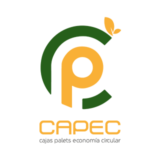What is a clean point?
Clean points, or ecoparks, are facilities specially designed for the separate, controlled and safe collection of household waste. Their main objective is to facilitate selective separation at source and, as a result, to promote recycling among the population and preserve the environment.
These spaces usually have different deposits or areas for the reception of different types of waste that, due to their composition or size, cannot be deposited in traditional containers. We are talking about batteries, batteries, small electrical appliances and electrical appliances, but also tyres, vegetable or motor oil or packaging with toxic content.
Depending on their mobility or size, clean points can be classified as follows:
- Fixed clean points: these are located in a specific space. They are usually larger and therefore store a larger amount of waste. In some cases, and given their size, these spaces can receive bulky waste such as mattresses, tables and cupboards or WEEE such as refrigerators or washing machines.
- Mobile clean points: unlike fixed ecoparks, they are itinerant and visit different localities. They are smaller in size and, for this reason, they usually set limits on the number of waste items deposited per person per day. They facilitate recycling in municipalities that do not have fixed clean points.
- Mini clean points: recycling points located in some cities that reinforce the work carried out by fixed and mobile eco-parks. Due to their small size, these devices only collect small format waste such as batteries, light bulbs or electrical appliances such as remote controls or mobile phones.
How do I know where there is a clean point near me?
Thanks to new technologies and the willingness of City Councils and Consortiums to serve, finding a clean point near your residence is quite simple. To do this, you have different tools:
- Council website or mobile application: Most councils have a website or mobile application where they provide information on nearby collection points, their opening hours and the waste they accept.
- Website or mobile application of the waste consortium to which your municipality belongs: although local councils are responsible for waste collection and transport, the consortia are responsible for waste treatment and recovery. They are also responsible for managing the fixed and mobile ecoparks. Therefore, on their website and social networks it is possible to access the clean points of each of the municipalities they group together.
- Search engine of the Organisation of Consumers and Users (OCU): the OCU has created a search engine that allows you to locate the ecoparks that make up the network of clean points in our country.
- Online maps: Platforms such as Google Maps or Bing Maps can also be useful in locating clean points in your area. Simply enter “ecoparks” or “clean points” near my location in the search engine and the results near your residence will be displayed.
- Citizen helplines: Some cities have citizen helplines where you can obtain information on the nearest clean points.
Remember that the information may vary depending on your geographical location, so it is advisable to check the availability of these services in your area.

What can be taken to the clean point?
The items and materials you can bring to an eco-park may vary depending on the location and its specific policies. However, these are some of the waste items that most mobile and fixed waste collection points accept:
- Metals: frying pans, pots, small tools…
- Electronic waste: computers, mobile phones, televisions, small electrical appliances, microwave ovens, etc.
- Cells and batteries: alkaline batteries, button cells, mobile phone or laptop batteries…
- Printer cartridges and toners.
- X-rays.
- Aceites usados: aceite de cocina o de motor usado
- Toys: cuddly toys, dolls, construction sets, remote-controlled cars…
- Packaging with hazardous or toxic contents: paint, unfinished sprays, etc.
Regulations of the clean points
Although ecoparks may be managed by different entities, there is a common regulation for all of them. Some of the regulations of the clean points are:
- Free service: there is no charge for the use of the ecoparks. Users will be able to deposit accepted waste there without any extra charge.
- Opening hours and access: clean points must indicate opening and closing times to facilitate their use by the public. They must also be properly signposted to ensure access.
- Required documentation: in the same way, they must inform about the documentation to be provided for the use of these facilities (if any).
- Support staff: regardless of whether they are fixed or mobile, the ecoparks must have a technician who is responsible for managing the waste arriving at the clean point and guiding users and users.
- Clean facilities: Ecoparks should be clean and ensure the safety of staff and the public at all times.

Objects that should not be taken to the recycling centre
Although clean points are facilities designed to receive and manage waste properly, there are some wastes that should not be deposited in these spaces:
- Organic waste: organic waste, such as food scraps, fruit or vegetable peels, should be disposed of in organic waste bins or composted.
- Health care waste: products such as dressings or expired medicines should be deposited in the appropriate containers, such as those for health care waste or pharmacies (SIGRE points).
- Hazardous waste: Chemicals, flammable or explosive products should not be brought to the clean points, as they may pose a danger to personnel and the environment. It is important to consult the appropriate management options for these materials.
- Bulky waste: Large items such as furniture, large appliances or rubble may not be accepted at regular collection points due to their size or volume. There may be specific collection services for this waste, so it is advisable to find out what options are available in your locality.
What you didn’t know
Here are some curiosities related to the puntos limpios or ecoparks that you may not be aware of:
- Origin: The first clean points appeared in Europe in the late 1970s as a response to the need to manage waste more efficiently and sustainably.
- Circular economy: Eco-parks promote the circular economy by enabling the recovery and recycling of materials for subsequent reuse and recycling, thus reducing the need to extract and manufacture new resources.
- Selective collection routes: In some rural areas, selective collection routes have been established in different localities to collect recyclable materials directly from households. This route or service is known as Door to Door.
- Reuse of objects: In addition to recycling, some clean points promote the reuse of objects in good condition. These items are destined for donation programmes or sale at reduced prices.
In conclusion, ecoparks or clean points are fundamental spaces to promote the correct management of waste and contribute to the care of the environment. Through the separation and recycling of materials, we can reduce the negative impact on our environment and promote a greener and more sustainable future. Now that you know more about clean points, don’t hesitate to use them responsibly and help preserve the planet. Your commitment makes a difference!
